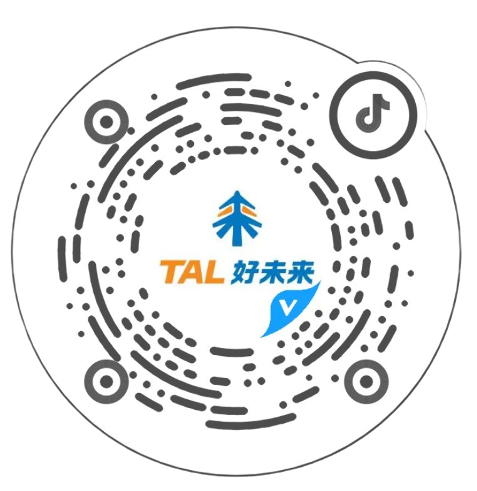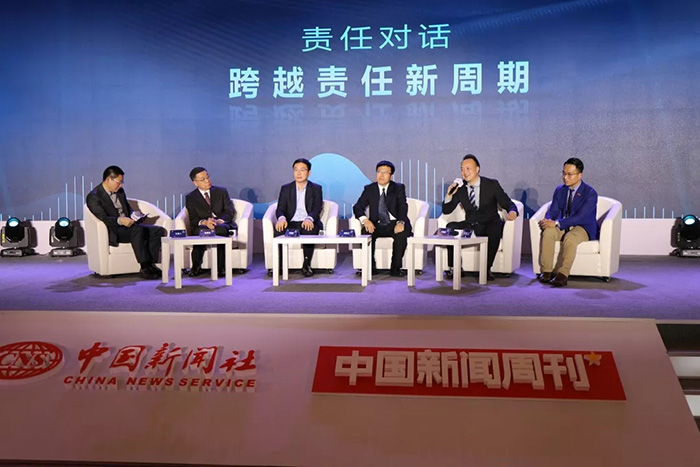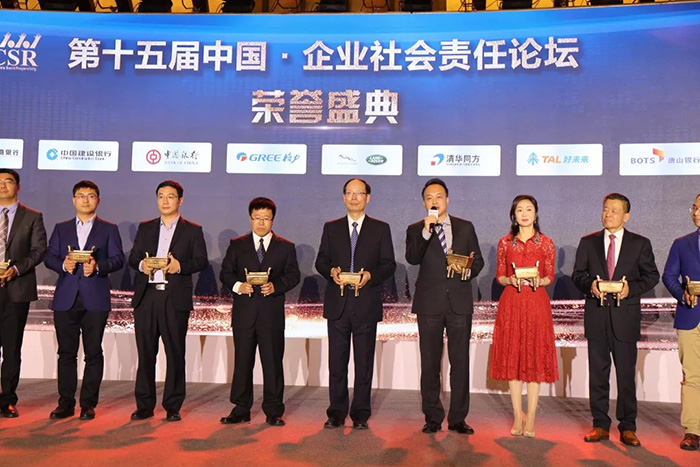




On November 23rd, the 15th China Enterprise Social Responsibility Forum, hosted by China News Service and China Newsweek, was held in Beijing. The theme of the forum was "Striving: Crossing into a New Era of Responsibility," aimed at providing advice and suggestions for the practice of responsibility in the new era. In the announced rankings, TAL Education Group (also known as Good Future Education Group) was awarded the "2019 Annual Responsible Enterprise."
Ma Peihua, the Vice Chairman of the 12th National Committee of the Chinese People's Political Consultative Conference (CPPCC), delivered a speech at the forum, calling on enterprises to strive across into a new era of responsibility in the new situation, demonstrating innovative spirit and a sense of responsibility. Chen Zhili, former State Councilor and former Vice Chairperson of the Standing Committee of the 11th National People's Congress, attended the forum and presented the award for the annual responsible enterprise.
As a representative of the company, TAL Education Group CEO Larry Chen was invited to attend the forum. He stated at the forum that TAL Education Group has been deeply rooted in the education industry and has always insisted that "doing a good job in education is the greatest public welfare." Currently, TAL Education Group has more than 7,000 party members, with over 1,600 party members serving in various leadership positions. In TAL Education Group, party-building work and public welfare are closely integrated, and party members have played a leading role in fulfilling social responsibilities. TAL Education Group has experienced the 1.0 stage of providing funds for public welfare, the 2.0 stage of providing teachers, and the 3.0 stage of providing technology in its public welfare activities. In the next stage, TAL Education Group will continue to promote intelligent education to alleviate poverty through love and technology.

At the forum, he shared a case study of the dual-teacher live broadcast in Ji Mu Nai, Xinjiang, which attracted widespread attention. TAL Education Group has installed 53 dual-teacher classrooms in 10 schools in Ji Mu Nai County. TAL Education Group teachers provide online live classes for local students, while local teachers serve as on-site coaching teachers in the dual-teacher model. They also provide online live broadcasts to train local seed teachers, and finally, local seed teachers teach children in local live classrooms, completing a cycle from "blood transfusion" to "hemopoiesis," driving the mutual progress of local teachers and students. Currently, more than a thousand teachers and nearly 7,000 students in the county have benefited from this program.
"Through our self-developed technology, we hope to achieve the 'three large-scale' aspects of education- large-scale high-quality education, large-scale enjoyable education, and large-scale personalized education," Larry Chen said.
As of now, TAL Education Group has more than 6,000 research and development staff, with an annual research and development investment of more than ten billion yuan, and has become the construction unit of the national new generation of artificial intelligence open innovation platform for smart education. Larry Chen believes, "Practice has proved that AI and other technologies can strengthen the supply side in educational poverty alleviation, making educational public welfare more efficient and warm."

In Zhaojue County, Liangshan Prefecture, Sichuan Province, nearly 80,000 Yi children are learning Mandarin through the "AI Teacher Mandarin Teaching System." This system, developed by Xueersi Online School, a subsidiary of TAL Education Group, uses AI technology to teach children Mandarin in Yi-Han bilingual language. In just one year, the children have made rapid progress. When the video of Yi children learning Mandarin was played at the event, the attendees were deeply moved - educational public welfare is interrupting the intergenerational transmission of poverty.
In Larry Chen's view, as long as we truly invest our hearts, uphold the spirit of craftsmanship, and use love and technology to promote educational poverty alleviation, we can achieve a solution to educational public welfare that is "applicable, effective, sustainable, and precise." "Applicable" means improving touch rates, allowing children in mountainous areas and children recovering from illness to enjoy high-quality educational resources. "Effective" means that online education and AI teachers can carry rich audio and video, animations, images, and voice interactions, significantly enhancing the fun and interactivity of the classroom. "Sustainable" means that the operating cost of intelligent public welfare solutions is low and efficient, and local teachers and students will choose to use them for a long time. "Precise" means using technologies such as artificial intelligence to help local teachers understand students better and create personalized and precise improvement plans to enhance the efficiency of educational poverty alleviation.